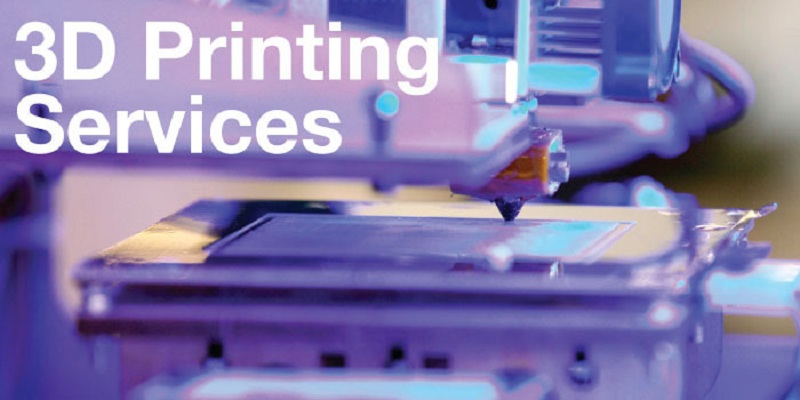Essential Factors to Consider When Hiring a 3D Printing Company
In recent years, 3D printing has revolutionized various industries, from manufacturing and healthcare to fashion and architecture. As businesses increasingly turn to this innovative technology for prototyping and production, the demand for reliable 3D printing companies has surged. However, choosing the right 3D printing service can be a daunting task, given the myriad of options available. Selecting a company that aligns with your specific needs can significantly impact the quality of your final product and the efficiency of your project. To help you navigate this decision, we’ve compiled a list of ten essential factors to consider when hiring a 3D printing company. By keeping these considerations in mind, you can ensure that you partner with a provider that meets your expectations and delivers exceptional results.
1. Expertise and Experience
When hiring a 3D printing company, it’s crucial to assess their expertise and experience in the field. Look for companies that have a proven track record and a portfolio showcasing their previous work. Experienced providers are more likely to understand the nuances of different materials, printing technologies, and design requirements. Consider asking for case studies or references to gain insight into their capabilities and how they have successfully handled projects similar to yours.
2. Range of Services Offered
Different projects may require various 3D printing technologies and materials. When evaluating potential companies, consider the range of services they offer. Some companies specialize in specific technologies, while others may provide a broader array of options. Ensure the company can accommodate your specific needs, whether you require rapid prototyping, production runs, or post-processing services.
3. Material Options
The choice of materials is a critical factor in 3D printing, as it directly affects the quality, durability, and appearance of the final product. Different companies may offer varying material options, including plastics, metals, ceramics, and composites. When hiring a 3D printing company, inquire about the materials they have available and whether they can source specialized materials if needed. Understanding the properties of different materials will help you make informed decisions about your project.
4. Quality Assurance Processes
Quality assurance is crucial in plastic 3D printing, as even small errors can lead to significant problems in the final product. To ensure that your 3D printing project meets your specifications, it’s essential to evaluate the company’s quality control processes. Ask about their inspection and testing procedures to understand how they guarantee accuracy and precision.
A reputable 3D printing company will have established quality assurance protocols in place to minimize defects and ensure that the final product meets your requirements. They should conduct regular inspections and tests on their prints to detect any errors or inconsistencies. Additionally, they should have measures in place to ensure accuracy and precision, such as calibration procedures for their equipment and training programs for their staff.
By asking about a company’s quality control processes, you can gain confidence in their ability to deliver high-quality 3D prints that meet your specifications. A company that prioritizes quality assurance will have a reputation for reliability and precision, ensuring that your final product is accurate, functional, and meets your expectations. By prioritizing quality assurance, you can avoid costly reprints, delays, and other issues that can arise from poor-quality prints.
5. Turnaround Time
Time is often a critical factor in any project, and 3D printing is no exception. When considering a 3D printing company, inquire about their typical turnaround times for projects similar to yours. Factors such as the complexity of the design, the chosen materials, and the printing technology can all influence production time. Ensure that the company can meet your deadlines and has a clear communication process for updates on project status.
6. Pricing Structure
Understanding the pricing structure of a 3D printing company is essential for budgeting your project effectively. Different companies may have varying pricing models, including per-hour rates, per-gram pricing, or fixed pricing for specific services. Request detailed quotes from multiple providers to compare costs and ensure you understand what is included in the price. Be cautious of prices that seem too low, as they may indicate compromised quality or hidden fees.
7. Customer Support and Communication
Effective communication is vital for a successful partnership with a 3D printing company. Assess the level of customer support they offer, including how responsive they are to inquiries and how willing they are to provide guidance throughout the process. A company that prioritizes customer service will be more likely to address your concerns and collaborate with you to achieve the desired outcome.
8. Intellectual Property Protection
When working with a 3D printing company, especially for proprietary designs or sensitive projects, it’s essential to consider intellectual property protection. Inquire about the company’s policies regarding confidentiality and data security. A reputable provider should have measures in place to protect your intellectual property and ensure that your designs are not shared or replicated without your consent.
9. Location and Shipping Options
The location of the 3D printing company can impact both turnaround times and shipping costs. If you require quick access to prototypes or products, consider hiring a company that is geographically closer to you. Additionally, inquire about their shipping options and policies. Understanding how they handle logistics can help you avoid unexpected delays and costs.
10. Reviews and Reputation
Finally, take the time to research the reputation of the 3D printing architecture companies you are considering. Online reviews, testimonials, and industry recommendations can provide valuable insights into the experiences of previous clients. Look for companies with positive feedback regarding their quality, reliability, and customer service. A strong reputation in the industry is often a good indicator of a company’s ability to meet your needs effectively.
Choosing the right 3D printing company is a crucial step in ensuring the success of your project. By considering factors such as expertise, range of services, material options, quality assurance, turnaround time, pricing, customer support, intellectual property protection, location, and reputation, you can make an informed decision that aligns with your specific requirements. Investing time in this selection process will not only enhance the quality of your final product but also foster a productive partnership with a reliable 3D printing provider. As the demand for 3D printing continues to grow, finding a trustworthy partner will be key to unlocking the full potential of this innovative technology.

